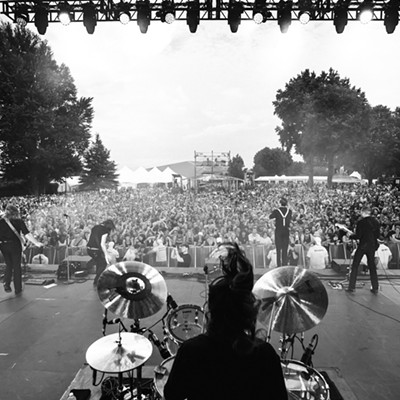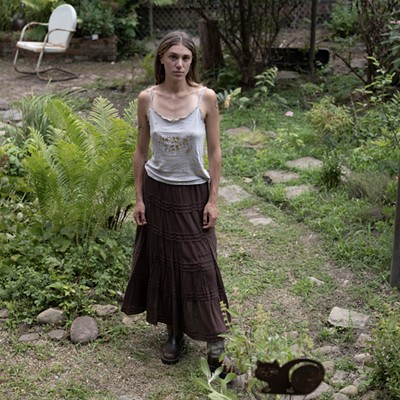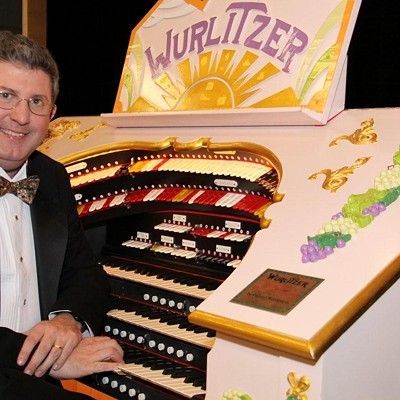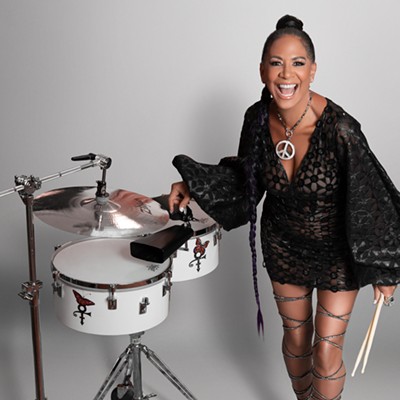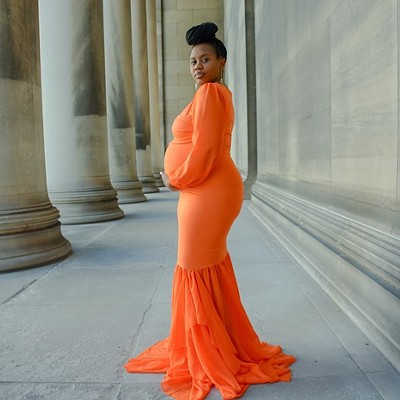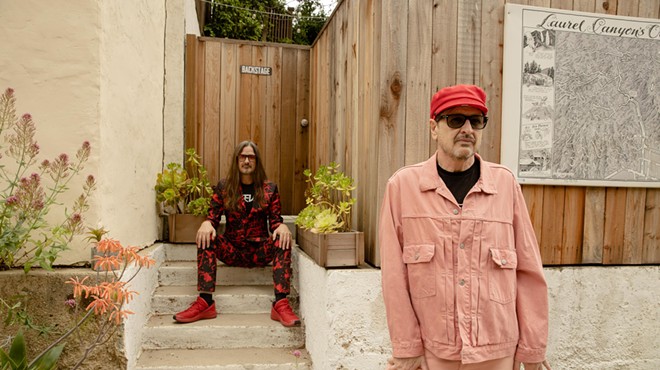When I call up Barry Johnson in early October, it’s a busy news day. The band he fronts, Joyce Manor, is currently driving to San Francisco for its first U.S. tour date with The Hotelier and Crying. Earlier that day, the band released a music video for “Last You Heard of Me” which rivals Tarantino in body count, and all but forces you to consider a more literal interpretation of its title. And on that coming Friday, the world would finally be able to hear Joyce Manor’s great fourth record, Cody. But first, I have to ask him about Billie Joe Armstrong.
In an interview with NME earlier that morning, Armstrong, who also had a new record to promote, opened up about his 2016 New Year’s resolution “to destroy the phrase ‘pop-punk’ forever.” Armstrong knocked the term for ignoring the diversity of sound that can exist within a music scene. “I’ve always hated the phrase ‘pop-punk.’ I think it’s a contradiction in terms. Either you’re punk, or you’re not,” Armstrong said. “It’s just that it’s too singular a term for my tastes.”
In some ways, he’s right: All three bands on the Joyce Manor tour have been called pop-punk at one time or another, but you wouldn’t know it from listening to their latest releases. It’s a well-rounded bill of three rock bands that share little beyond a common belief in the guitar as a force for good. Joyce Manor’s going to throw an all-out party, interspersed with the nagging fear of growing up and getting your shit together. The Hotelier believes in expunging personal trauma with group shout-alongs and finding a way to keep going in the face of it all. And Crying promises a sensory overload of a new album, with Rush, Van Halen and Thin Lizzy as reference points.
But Johnson doesn’t share Armstrong’s trepidation about the phrase, though he acknowledges how it can generalize scenes. He uses it liberally throughout our talk to describe Joyce Manor, and says that he doesn’t see it as a derogatory term. Joyce Manor made its name as a pop-punk band from humble beginnings — the band comes from Torrance, Calif., a town which Johnson describes as a “gee shucks” sort of place with no freeway access. He isn’t keen on abandoning the genre that got the band going, even as it moves closer to so-called “mature indie rock” on Cody.
Any band that’s more indebted to blink-182 than say, Pavement, exists in a space where a devout, young fanbase can seem easier to attain than music-blog cred. After 2014’s Never Hungover Again, Joyce Manor finally got a healthy taste of both. Cody has drawn even more favorable press thus far and looks like the second wave of a commercial breakout, but Johnson doesn’t try to think much about either audience when he’s writing songs. “I’m not really that concerned with whether it’s energetic enough for kids to respond to live, and I’m also not really worried about if it’s going to be cerebral enough to make an impression on people,” he says.
Cody isn’t quite a cerebral record, but it contains sharp observations and moments of careful perception by the dozen. These songs don’t deal with particularly challenging or important subject matter, and Johnson assures me that he was going through the opposite of a difficult period when writing them. As a songwriter, he’s displaying more intuition than ever before.
Several times on the record, he employs road-tested narrators who seem to know from the beginning how a situation might end. “Last You Heard of Me” forecasts the inevitable heartbreak and loneliness of a relationship’s aftermath. “Angel in the Snow” finds a narrator who can’t find excitement or meaning in much of anything. And if you know one line of Joyce Manor’s, it’s probably the cutting send-up of over-the-top music coverage from “Fake I.D.”: “‘What do you think about Kanye West?’/ ‘I think that he’s great, I think he’s the best’/ ‘Yeah, I think he’s better than John Steinbeck’/ ‘I think he’s better than Phil Hartman.’”
Aside from the subject matter, these songs push themselves into more conventional territory. An early Joyce Manor song would rarely squeak past the two-minute mark; Cody has some comparative epics that run for three to four minutes. For the ambitious song lengths, they owe part of the credit to renowned producer Rob Schnapf (Elliott Smith, Guided By Voices), and fun’s Nate Ruess, who lends backing vocals to “Angel in the Snow.” Johnson says he and Ruess got drinks and talked songwriting, which eventually turned into exchanging demos and iPhone voice memos, sparking the idea to include a chorus on “Angel.” Going forward, Johnson doesn’t think they’ll make a full return to the blink-and-miss-it song structures. “I wouldn’t see us just intentionally having songs that are a minute-thirty when we know full well how to get more out of the songs.”
With involvement from Schnapf and Ruess, Joyce Manor’s making the kind of moves that would have constituted a major leap 15 years ago, in a more rock-friendly music industry. It might’ve meant graduating from clubs to amphitheaters and small arenas, a move which seems damn near unattainable for a band operating in this genre today. But for now, Johnson’s more than fine with what the group has accomplished. “It would be cool to play an arena — like not even us — to open for a band that plays an arena,” Johnson said. “But that’s like so bonus-round shit that I’m not gonna be bummed on my deathbed, like ‘if only I got to play in an arena.’ Everything from here on out is extra stuff.”




